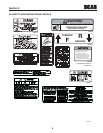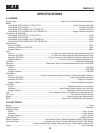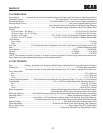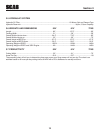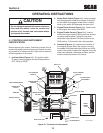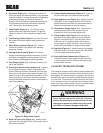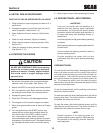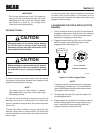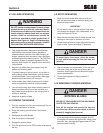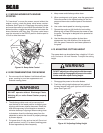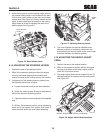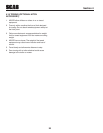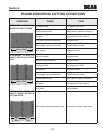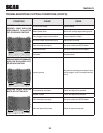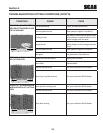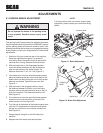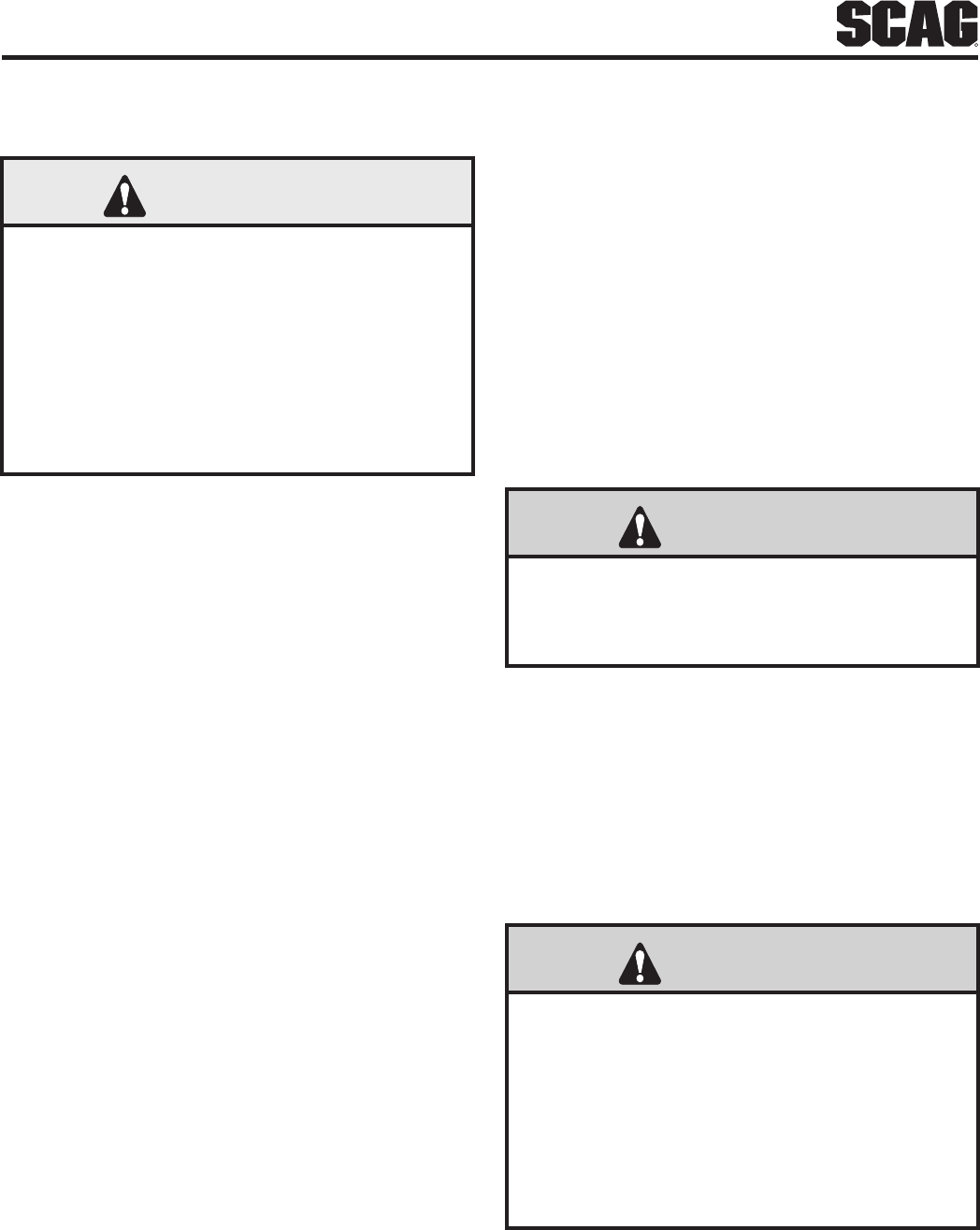
17
R
Section 4
HILLSIDE OPERATION4.7
WARNING
DO NOT operate on steep slopes. To check a slope,
attempt to back up it (with the cutter deck down).
If the machine can back up the slope without the
wheels slipping, reduce speed and use extreme
caution. Under no circumstances should the
machine be operated on slopes greater than 15
degrees. See Figure 2-4, Page 7 to help determine
approximate slope of area to be mowed. ALWAYS
FOLLOW OSHA APPROVED OPERATION.
This mower has been designed for good traction 1.
and stability under normal mowing conditions.
However, caution must be used when traveling on
slopes, especially when the grass is wet. Wet grass
reduces traction and steering control. The Roll-Over
Protection System is standard equipment for this
machine. See Section 2.5, page 6 of this manual for
further details.
Stay two cut widths away from slopes, drop offs, 2.
ditches and retaining walls.
To prevent tipping or loss of control, do not start or 3.
stop suddenly, avoid unnecessary turns and travel
at reduced speed. If tires loose traction, disengage
blades and proceed slowly off the slope.
Avoid sudden starts when mowing uphill. Sudden 4.
starts may cause the machine to tip backwards.
Loss of traction may occur when traveling down hill. 5.
Weight transfers to the front of the machine and
may cause the drive wheels to slip causing loss of
braking or steering.
Keep tires properly inflated.6.
PARKING THE MOWER4.8
Park the machine on a flat, level surface only. Do not 1.
park the machine on an incline.
Place the steering control levers in the neutral 2.
position.
Disengage the cutter blades.3.
Slow the engine to idle speed.4.
Engage the parking brake.5.
Turn the ignition key to the OFF position and remove 6.
the key.
AFTER OPERATION4.9
Wash the entire mower after each use. Do not 1.
use high pressure spray or direct the spray onto
electrical components.
- IMPORTANT -
Do not wash a hot or running engine. Cold water
will damage the engine. Use compressed air to
clean the engine if it is hot.
Keep the entire mower clean to inhibit serious heat
2.
damage to the engine or hydraulic oil circuit.
Check the drive belts for proper alignment and any 3.
signs of wear. Correct and adjust if necessary.
DANGER
To avoid injury from burns, allow the mower
to cool before removing the fuel tank cap and
refueling.
After the mower has cooled down, fill the fuel tank
4.
with fresh, clean fuel at the end of every day of
operation. See Engine Owner's Manual for proper
octane requirements.
Check the tire pressure. Adjust pressure if 5.
necessary.
REMOVING CLOGGED MATERIAL4.10
DANGER
ROTATING BLADES
NEVER PUT YOUR HANDS INTO THE DISCHARGE
CHUTE FOR ANY REASON!
Shut off the engine and remove the key and
only then use a stick or similar object to remove
material if clogging has occurred.
If the discharge chute becomes clogged, shut off
1.
the engine and remove the ignition key. Using a stick
or similar item, dislodge the clogged material. Then
resume normal mowing.



